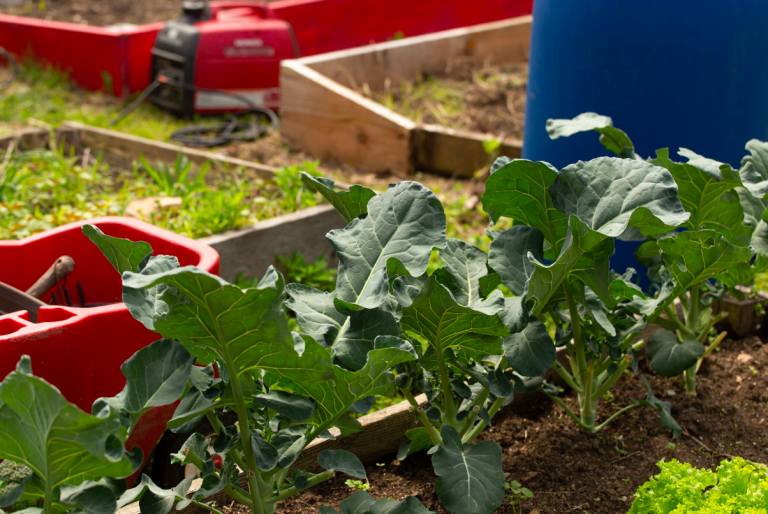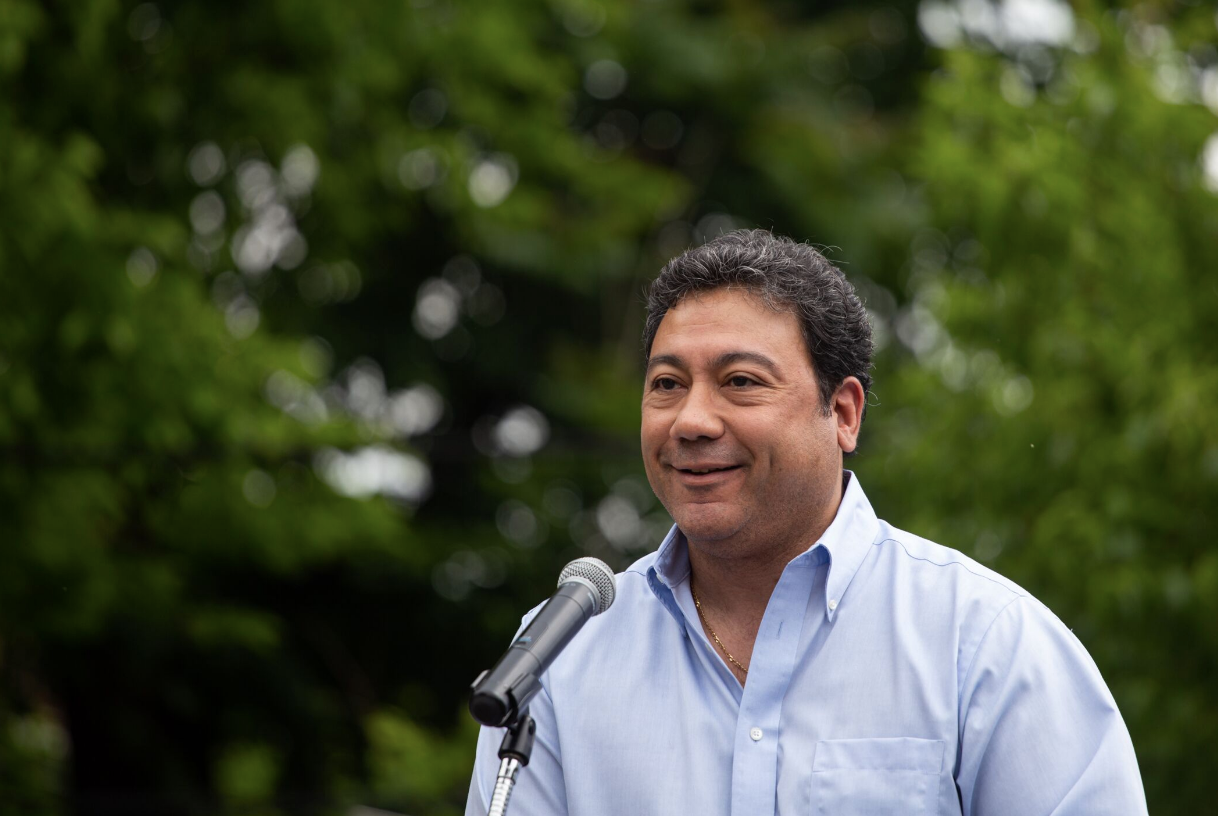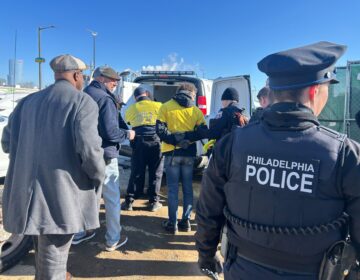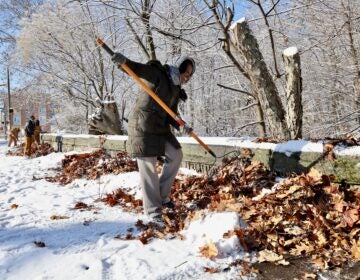More community gardens to bloom on city lots, Philly Land Bank czar says
City officials reaffirmed a commitment to protecting community gardens amid growing concerns about their tenuous hold in redeveloping neighborhoods.

Greens grow at Five Loaves and Two Fishes community garden in Overbrook. (Angela Gervasi for WHYY)
This article originally appeared on PlanPhilly.
—
When Victor Young saw a few abandoned lots in his West Philadelphia neighborhood, he knew he had found a perfect place to start a garden. Growing vegetables, he thought, could bring some brightness to an area struggling with crime and forsaken property. So he went for it, never thinking about who owned the land.
“Rather than letting [the land] go to waste, we gardened on it, until somebody said anything different,” Young said.
Six years later, Young and his neighbors tend Five Loaves and Two Fishes community garden on the once overgrown lots. The well-tended spread of raised beds and blooming plants is one of 30 such places that have been preserved over two years by the Philadelphia Land Bank, the Philadelphia Redevelopment Authority and Neighborhood Gardens Trust, an organization affiliated with the Philadelphia Horticultural Society.
City officials gathered at the farm on a recent afternoon to reaffirm their commitment to protecting community gardens amid growing concerns about their tenuous hold in redeveloping neighborhoods. Angel Rodriguez, the executive director of the Philadelphia Lank Bank, described the public green spaces as a priority for his administration.

Rodriguez said he plans “to really focus on community gardens, stabilizing them and acquiring more land” for them.
“There are a lot of things that people don’t get about community gardens and what it does for a neighborhood,” said Rodriguez. “You get community cohesion, you have a sense of territoriality, and, also, it lets people know that the community is active, and here, and that they care.”
The people who operate Five Loaves own five of the farm’s six formerly vacant lots and hope to eventually secure title to the remaining parcel. Even without all of their land locked down, the group is one of the lucky ones. About half of the city’s estimated 470 community gardens operate on abandoned land that farmers don’t own or control.
That means that their land could be sold out from under them, sometimes without anyone in the community even knowing. Dozens of groups have lost their gardens over the last few years. Many more are vulnerable as developers scour for land in areas where gardeners were, until recently, the only people putting down roots.
Some growing pains
In the last fiscal year, the land bank got 20 properties at sheriff’s sale for community gardens, officials said. But transfers to gardens groups have been slow. The agency aimed to transfer 33 last year, but only four went to Neighborhood Gardens Trust. The goal for this year is 40; so far, only one is in hands of gardeners. Rodriguez blames court delays for the lagging pace of progress, but he said that a fix is in the works.
“The courts don’t move on an expedited way. It takes nine to 14 months to acquire a property, once we’ve identified that it’s tax delinquent. And, on average, it takes seven months to convey a property,” Rodriguez said. “But once we have it in our possession, you can consider the garden secured.”
Public Interest Law Center attorney Ebony Griffin, who has worked with many gardeners to stave off displacement, said the announcement was an important step.
“I think when the city comes out and publicly gives their stands on things, it gives the community something to hold them to. And I think accountability is important,” Griffin said. “So, we’ll see.”
Greg Heller, executive director of the Philadelphia Redevelopment Authority, praised the value of the city’s gardening community and admitted public agencies need to do more to help it thrive.
“We have, by far, one of the most diverse, deep-rooted and active urban agriculture scenes that I’ve seen, and that’s something that we need to celebrate, and that we should be proud of, and that we should invest in and help to grow,” Heller said.
The announcement came a few weeks after the city Park and Recreations Department named its first urban agriculture director, Ash Richards, to conduct the city’s initial urban agriculture master plan. Patrick Morgan, the department’s first deputy commissioner, said the master plan will streamline the cumbersome process of preserving gardens.
The land bank is still working on a strategic plan — it was supposed to come out last year. A public hearing for the plan is scheduled for June.
WHYY is your source for fact-based, in-depth journalism and information. As a nonprofit organization, we rely on financial support from readers like you. Please give today.







